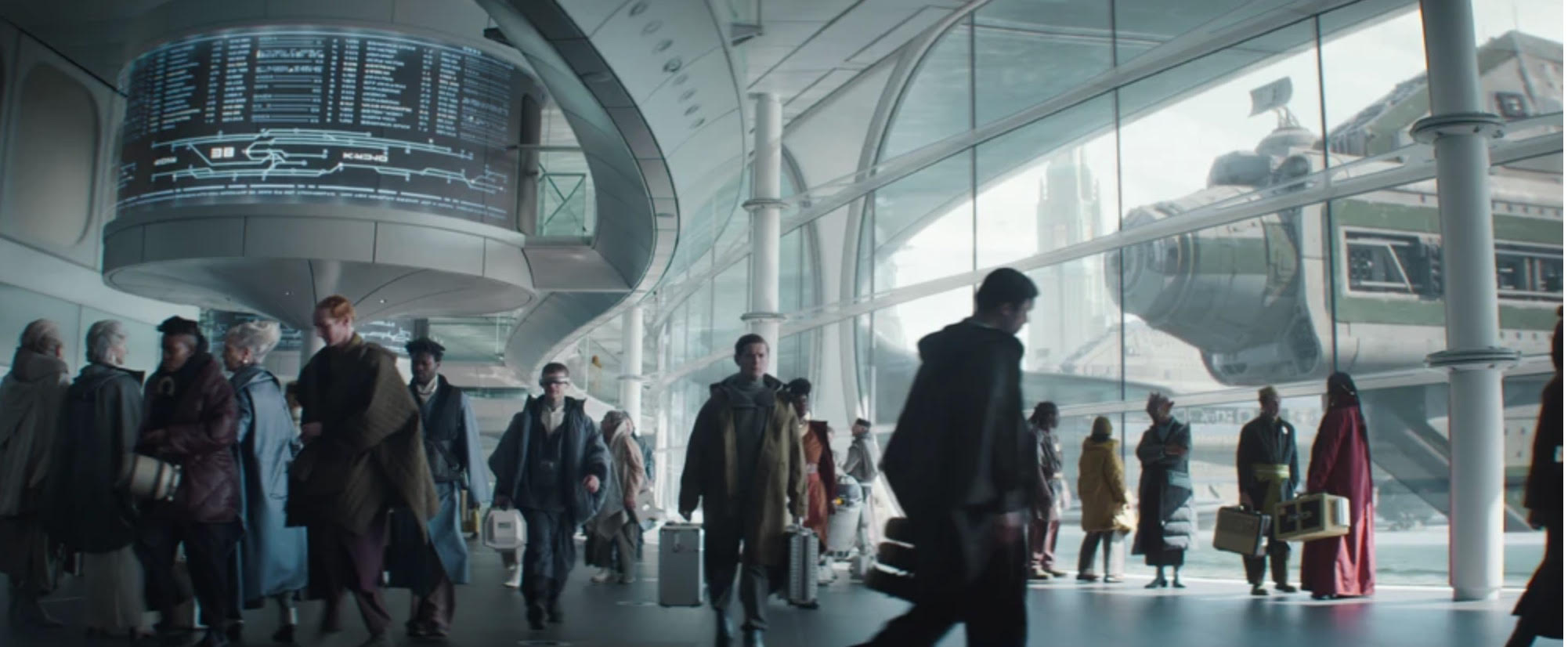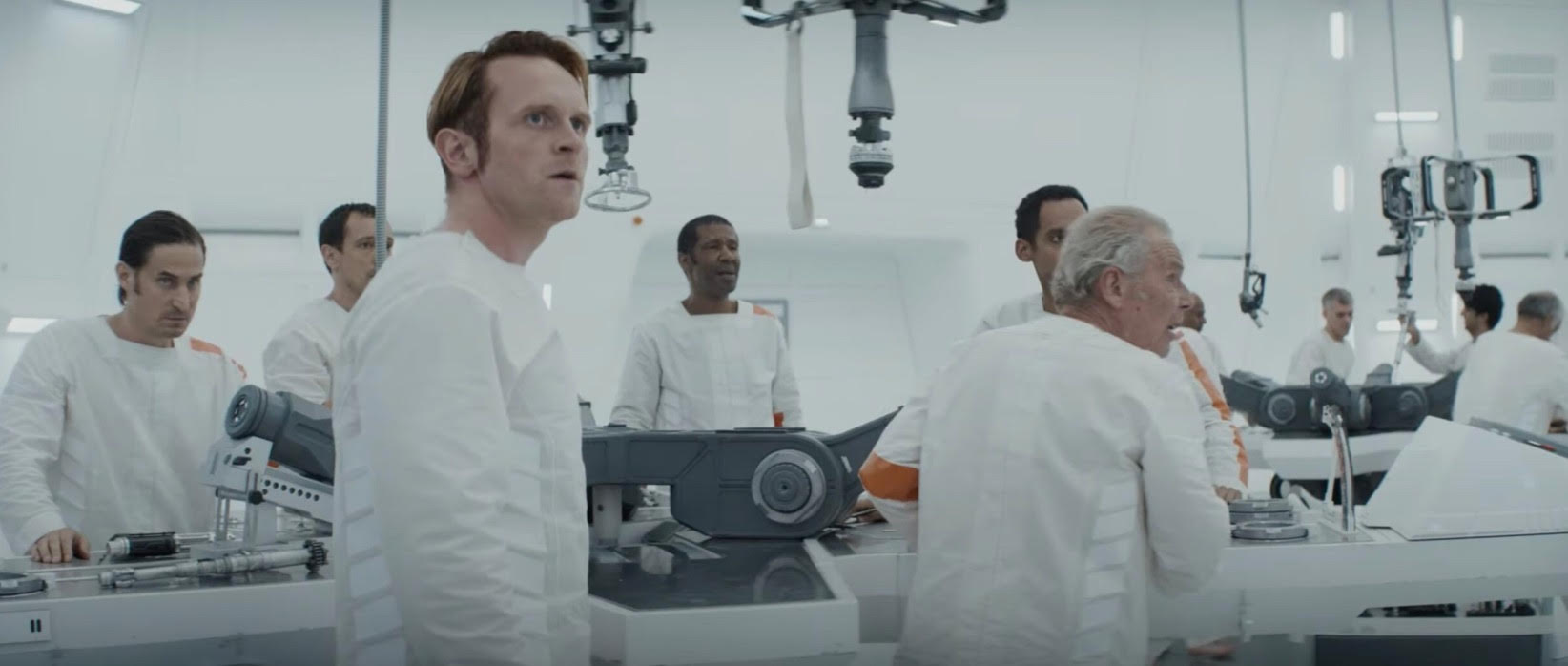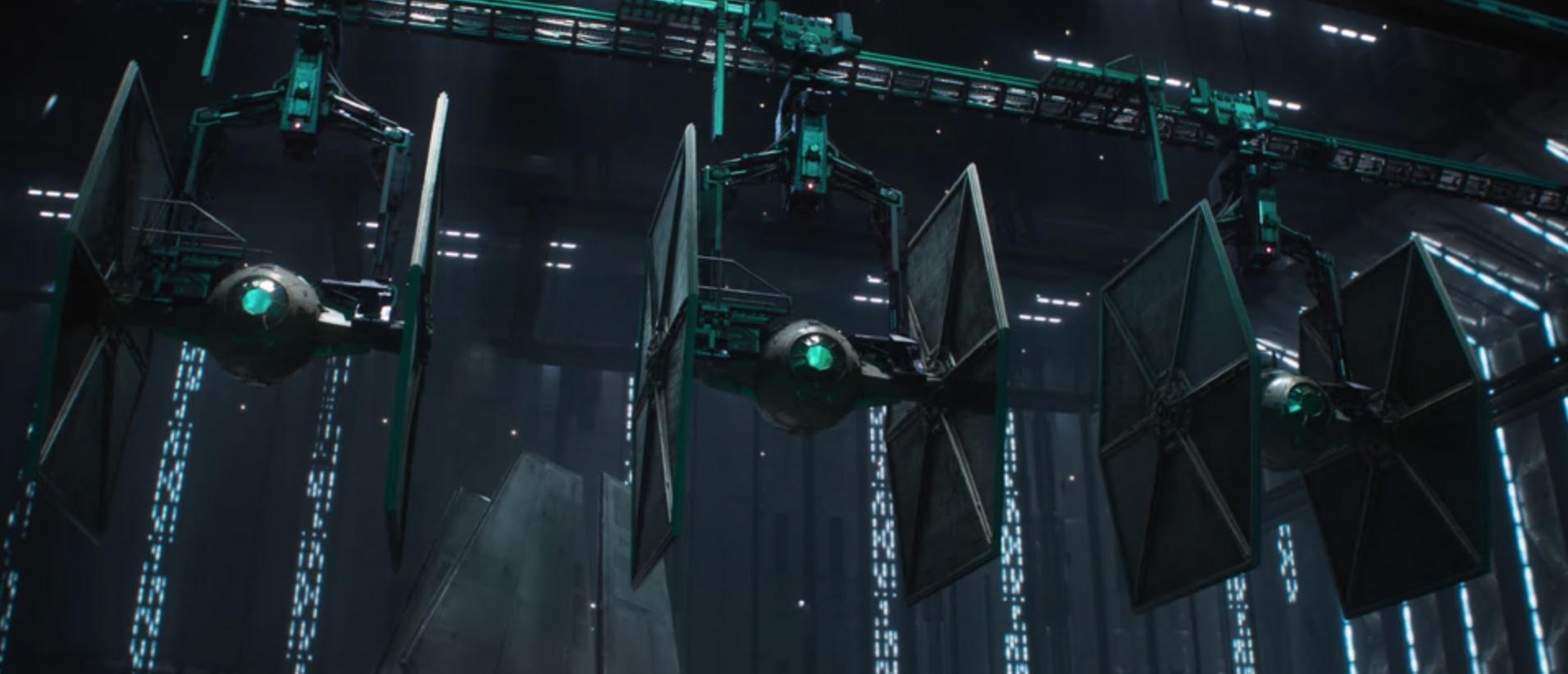The turbulent season finale of “Andor” came and went and we’re still basking in the afterglow of this sensational 12-episode “Star Wars” series on Disney+.
Using a minimalist style that operates within the “less is more” arena of filmmaking, creator and showrunner Tony Gilroy have accomplished a Herculean task of conjuring fresh magic within the “Star Wars” universe. Filming for Season 2 has recently started on this triumphant spy thriller chronicling the nascent days of the Rebel Alliance and its renegade assassin Cassian Andor and how he enters the resistance’s fold with the guidance of Rebel mastermind Luthen Rael. Lucasfilm’s sophomore season of “Andor” planned for 2023 or 2024 takes viewers right up to the timeline where “Rogue One” begins.
“Andor’s” VFX producer TJ Falls and supervising sound editor David Acord spoke with Space.com regarding their artistic approach to mapping out the provocative sci-fi prequel set five years before the events 2016’s “Rogue One: A Star Wars Story,” when the Empire was tightening its tyrannical grip on the galaxy and the Rebellion movement was born.
Related: ‘Andor’ concludes epic first season with a slightly confusing finale
“Mohen Leo, who’s our visual effects supervisor, and I both worked on ‘Rogue One’ so we had a great shorthand with Tony already,” Falls told Space.com. “So we knew coming into Andor there were certain specific things we wanted to do. One of which was making sure that every aspect of the show was rooted in a sense of reality. We worked really hard to ensure that even in the most CG-type [computer graphics] environments there’s a sense of the real world. A good example of that would be Coruscant, which has been established in the prequels and other lore of ‘Star Wars.'”
Coruscant’s bustling sci-fi metropolis has been seen in many “Star Wars” prequels and sequels, but never with such an air of middle-class normalcy and authenticity. While still being based on 20th-century New York City, Falls and his crew needed it to function as a society as well.
“We looked at areas like Tokyo where you have different districts in a major metropolitan area, and took that idea back to our show. Tony wanted to make sure we’re not glamorizing the CG aspects just for the sake of it. Rather than focusing on the most beautiful parts of Coruscant, these were shots you’d have in any other city in any other movie. It was that sense of reality we maintained, and that was really our mantra to pull the audience in to be a part of the story.
“It was a concentrated effort amongst all the departments the entire way through. Everybody was fighting for the same goal to make sure we had these components. When doing a series of this size it’s like doing three or four movies all back to back together with the same level of expectation of aesthetics and visual quality you’d expect from any feature film.”

There’s a unique relationship between visual effects and sound design, which complement one another to bring forth a composite creation for “Andor’s” various machines, vehicles and environments. The nuanced texture of its sonic landscape was the sandbox sound editor David Acord submerged himself in.
“The aesthetic starts with Tony and what he wanted was this kind of real world, grounded, gritty sound to put us all in a familiar place,” Acord explains to Space.com. “Everything feels a little gritty, a little rusty, a little worn. B2 is a little shaky and rusty. Footsteps have a bit of grit to them. Doors are a little squeaky. Which is also kind of classic ‘Star Wars’ as well so it all fits.”

For those mysterious Narkina 5 “widgets” the inmates are building, Acord and his crew made their distinctive noises using heavy weights that clanked and clunked.
“Tony was very keen on us getting the rhythm of it right and knowing each weld and ratchet and that there was a purpose and function to each one of those things. Then to mark each one of those things uniquely. So every time you see the prisoner with a welding laser, it’s the same sound every time. I sat with Luke Hull the production designer, and he showed me rehearsals of actors going through the full motions start-to-finish building the parts. All those sounds had to be a little different so you have a weirdly melodic rhythm. There’s a bit of music in the chaos.”
One of Falls’ favorite scenes in “Andor” was the Alkenzi Air Base sequence with T.I.E. fighter pilots launching into the Eye of Aldhani meteor storm to hunt down Cassian.
“It was a big CG scene that we used all the tricks of the trade for,” he admits. “We thought, how do we have people actually get into these things? Then they have to take off and it has to be cool and there has to be reason and purpose behind it. So that was a lot of fun to create working with Tony Gilroy and editor John Gilroy as we crafted the momentum and timing for the pilots’ take-off into the Eye of Aldhani and you get that colorful visual experience as well.”
Acord’s ear-pleasing accoutrements added to those dynamics and heightened the drama immeasurably.

“That’s a big music moment there as well and Nicholas’ score is driving that scene,” says Acord. “You hear metal footsteps running across and then jumping into the cockpit and all the while you have that classic Empire siren timed with the music. We played with the rhythm of the siren to fit with the music as well. You can feel it amping up the danger and the tension of that moment. You don’t see that very often in “Star Wars,” that preparation for flight for these T.I.E. fighter pilots.
“There’s the legacy sounds and then we have the opportunity to create fun new ones as well because there’s things happening we haven’t seen before. Then you get to dip into Ben Burtt’s awesome legacy palette for some of those screaming T.I.E. fighters, which is just awesome.”
All 12 episodes of “Andor” are now airing exclusively on Disney+.
Follow us on Twitter @Spacedotcom (opens in new tab) or on Facebook (opens in new tab).

